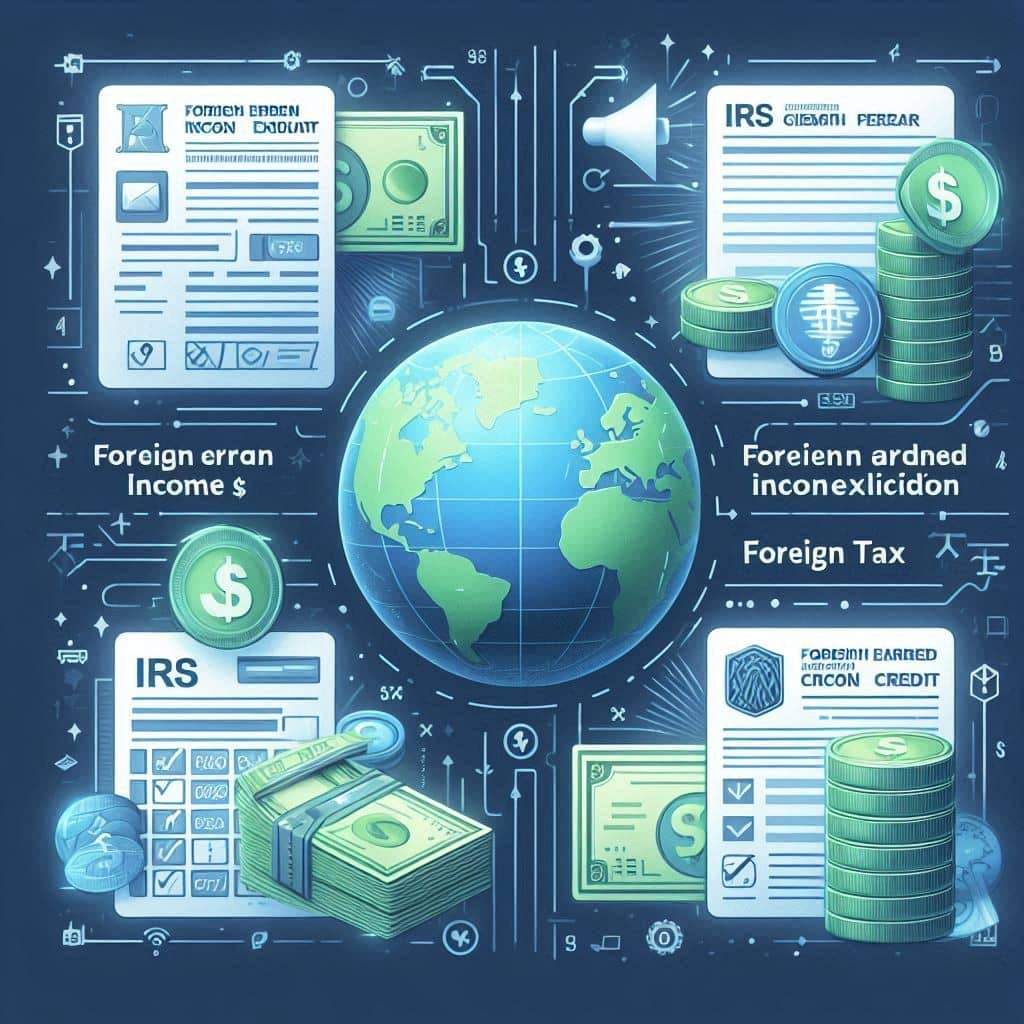Foreign Earned Income: A Complete Guide
Understanding Foreign Earned Income
Living abroad sounds like paradise—beaches, culture, and new experiences. But if you’re a U.S. citizen or resident alien, Uncle Sam doesn’t forget you. Yes, you still have to report your foreign earned income to the IRS.
Let’s unpack everything you need to know to keep your earnings (and your sanity) while staying compliant.

What Exactly Is Foreign Earned Income?
In Simple Terms
Foreign earned income is money you make by working outside the U.S. This could be:
- Salaries
- Freelance payments
- Business income
- Bonuses and commissions
If the work was done abroad, it’s probably foreign earned income.
How the IRS Defines It
According to the IRS, foreign earned income includes income for personal services performed in a foreign country, as long as your tax home is also abroad. But income from things like dividends, interest, pensions, or rental properties? Nope, not considered foreign earned.
Who Should Care About Foreign Earned Income?
U.S. Expats and Digital Nomads
Living in Portugal or Bali while working remotely? You’re still taxed by the U.S. But using tax breaks like the Foreign Earned Income Exclusion (FEIE) can save you thousands.
Freelancers and Entrepreneurs Abroad
Using Upwork, Fiverr, or direct clients from your laptop in Thailand? Then you should definitely understand how your income qualifies as foreign earned.

The Foreign Earned Income Exclusion (FEIE) Explained
What Is FEIE?
The FEIE allows qualified U.S. taxpayers to exclude a significant chunk of their foreign earned income from federal income tax.
How Does It Work?
For the 2024 tax year, you can exclude up to $126,500 of your foreign earned income. This figure adjusts annually for inflation.
Let’s say you earn $100,000 abroad and qualify for FEIE—you may owe zero U.S. income tax.
Qualifying for the FEIE: What You Must Know
Bona Fide Residence Test
You qualify if you:
- Live in a foreign country for a full calendar year
- Don’t plan to return to the U.S. soon
- Have a residency visa, lease, or job contract
Physical Presence Test
You qualify if you:
- Spend 330 full days abroad in any 12-month period
- Don’t count travel days or layovers
- Can show evidence like passport stamps and flight records
Foreign Tax Home Requirement
To be eligible, your tax home must be outside the U.S. That means:
- You live, work, and pay expenses abroad
- You don’t maintain a U.S. home for work

How to Claim the Foreign Earned Income Exclusion
Filing IRS Form 2555
To claim the FEIE:
- File Form 2555 with your Form 1040
- Include:
- Employer’s info
- Income details
- Days abroad
- Housing costs (if any)
Key Deadlines
- Living abroad on April 15? You get an automatic extension until June 15.
- Need more time? File Form 4868 for an extension until October 15.
Common Mistakes to Avoid with FEIE
- Miscounting your travel days (only full days count!)
- Filing Form 2555 with errors
- Ignoring the foreign tax home requirement
- Forgetting to track housing expenses
- Not keeping records of your travel and residency
Foreign Housing Exclusion and Deduction
What’s This About?
If your employer pays your housing costs abroad, you might qualify for the foreign housing exclusion. If self-employed, you may claim the foreign housing deduction.
Limits and Rules
In 2024:
- You can exclude up to $20,240
- Covers:
- Rent
- Utilities (except phones)
- Insurance
Proof matters: Keep lease agreements, bills, and receipts.
FEIE vs. Foreign Tax Credit (FTC): A Quick Comparison
| Feature | FEIE | FTC |
|---|---|---|
| Type | Exclusion | Credit |
| Income Limit | $126,500 | No Limit |
| Best For | Low-tax countries | High-tax countries |
| Can Use Together? | Yes, but not on same income | Yes, with limits |
When Is FTC Better?
If you pay more tax in your host country than you’d owe in the U.S., use the Foreign Tax Credit instead.
Can You Use Both?
Yes! Smart taxpayers sometimes combine FEIE and FTC—but not on the same dollars.
Special Considerations
Remote Workers for U.S. Companies
Still qualifies as foreign earned income—as long as the work is done outside the U.S. and your tax home is abroad.
Military and Government Employees
Sorry, FEIE doesn’t apply if you’re working overseas on government or military orders.
Real-World Examples
Jake in Bali
A digital nomad who earned $85,000 remotely. Passed the 330-day test. Paid zero U.S. tax.
Emily in South Korea
An English teacher making $45,000. Qualified under the bona fide residence test. Excluded all her income.
Peter in Switzerland
Consultant earning $150,000. Spent only 300 days abroad. Didn’t qualify for FEIE, but used Foreign Tax Credit.

Landmark Case Laws
Jones v. Commissioner
Clarified what qualifies as bona fide residency—highlighting intent to remain abroad indefinitely.
Wojcik v. Commissioner
Ruled that having a foreign tax home is crucial—even if income is from U.S. sources.
Harrington v. Commissioner
Showed how poor documentation of travel days disqualified an FEIE claim.
Pro Tips to Maximize Your Tax Savings
Documentation Is Crucial
Keep:
- Travel logs and flight records
- Foreign lease agreements
- Utility bills
- Employer letters
- Foreign bank account and ID documents
Plan Ahead
- Schedule vacations smartly to stay abroad for 330 full days
- Negotiate remote work contracts to meet FEIE requirements

Conclusion
Living and working abroad is exciting—but U.S. tax rules follow you wherever you go. Understanding your foreign earned income, qualifying for the FEIE, and using smart strategies like the Foreign Tax Credit can save you thousands.
Be proactive, stay informed, and document everything. The IRS isn’t going away, but you can legally keep more of your hard-earned money.
FAQs
What counts as a foreign country for the IRS?
Can I switch between FEIE and the Foreign Tax Credit every year?
What if I work in multiple foreign countries?
Are airline pilots or flight attendants eligible for FEIE?
Does freelancing on platforms like Upwork count as foreign earned income?
To read our legal and tax-related blogs, Read our [Tax Blog] for the latest updates and guides and dive into expert advice to protect your rights and grow your wealth! ⚖️💰
We’d love to hear from you! Have questions about foreign earned income or want to share your expat experience? Drop a comment below and let’s start a conversation. Your insights could help others too—don’t be shy!


